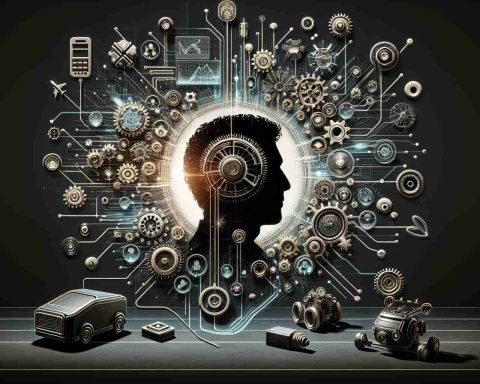An innovative research team led by Professors Ryu Ji-won, Kim Hye-won, and Kim Se-jung at Bundang Seoul National University Hospital has unveiled a groundbreaking technology that estimates salt intake from food photos using artificial intelligence analysis.
Excessive salt consumption is a known risk factor for cardiovascular diseases like hypertension and myocardial infarction, as well as systemic chronic conditions such as renal failure, gastric cancer, and osteoporosis. Despite the World Health Organization’s recommendation of a daily salt intake of 2,000mg, South Korea’s average daily consumption surpasses this guideline by 1.6 times, highlighting the necessity for awareness and management.
Until now, accurate monitoring of salt consumption has been challenging due to the impracticality of meticulously documenting food lists and quantities consumed at every meal. Current methods, such as the ’24-hour urine sodium test’ conducted during hospitalizations for conditions requiring sodium restriction, are considered the most precise yet cumbersome.
In light of this, Professors Ryu, Kim, and Kim’s research team leveraged artificial intelligence’s rapid advancements to validate the usefulness of estimating sodium intake from food photos. Using AI models that detect food items, classify them, and measure portions, the team demonstrated that comparing salt content differences between pre and post-meal photos allows for accurate sodium intake estimation.
The study involved capturing food photos before and after meals consumed by hospitalized patients at Bundang Seoul National University Hospital and comparing AI-calculated sodium intake with 24-hour urine sodium test results. The findings confirmed that when considering variables such as gender, age, renal function, and diuretic usage, AI analysis yields results closely mirroring those of the urine test. Furthermore, the team successfully derived an equation predicting actual urine sodium test results using AI-estimated sodium intake and estimated glomerular filtration rate.
This research highlights the potential of utilizing AI technology for convenient sodium intake monitoring among hospitalized patients, with future developments expected to expand its applications to everyday life. Professor Ryu emphasized the simplicity of capturing food photos before and after meals via smartphone apps, making it a more user-friendly approach than manual record-keeping or surveys. Professor Kim underscored the importance of managing salt intake in daily life to prevent hypertension-related complications, concluding that AI sodium measurement technology could serve as a valuable tool in this regard. Published in the international healthcare journal ‘JMIR Formative Research’, these findings mark a significant step towards transforming salt intake monitoring through innovative AI solutions.
An innovative research team led by Professors Ryu Ji-won, Kim Hye-won, and Kim Se-jung at Bundang Seoul National University Hospital has unveiled a groundbreaking technology that estimates salt intake from food photos using artificial intelligence analysis.
Excessive salt consumption is a known risk factor for cardiovascular diseases like hypertension and myocardial infarction, as well as systemic chronic conditions such as renal failure, gastric cancer, and osteoporosis. Despite the World Health Organization’s recommendation of a daily salt intake of 2,000mg, South Korea’s average daily consumption surpasses this guideline by 1.6 times, highlighting the necessity for awareness and management.
Key Questions and Answers:
1. What are the most significant advantages of using AI technology for salt intake monitoring?
– Using AI technology enables convenient and accurate estimation of salt intake from food photos, eliminating the need for cumbersome manual documentation.
2. What are the key challenges associated with implementing AI technology for salt intake monitoring?
– Ensuring the accuracy of AI algorithms in detecting food items, classifying them correctly, and measuring portions remains a critical challenge.
Advantages:
One major advantage of revolutionizing salt intake monitoring with AI technology is the potential for seamless integration into daily life. By simply capturing food photos via smartphone apps, individuals can easily track their sodium consumption without the need for detailed record-keeping. This user-friendly approach promotes awareness and encourages better management of salt intake, ultimately reducing the risk of associated health complications.
Disadvantages:
While AI technology offers convenience and efficiency, challenges such as algorithm accuracy, data privacy concerns, and accessibility issues may arise. Ensuring the reliability and precision of AI models in estimating sodium intake from varied food items and portions is crucial for effective monitoring. Additionally, addressing privacy and security measures to safeguard sensitive health data collected through AI applications is essential.
The incorporation of AI technology into salt intake monitoring presents a promising avenue for advancing healthcare practices and promoting preventive measures against salt-related health risks. As research continues to explore the potential of AI in enhancing dietary monitoring and management, collaborations between healthcare professionals, technologists, and policymakers will be vital in addressing challenges and maximizing the benefits of this innovative approach.
For more information on AI applications in healthcare and nutrition, visit Seoul National University Hospital’s official website.

















